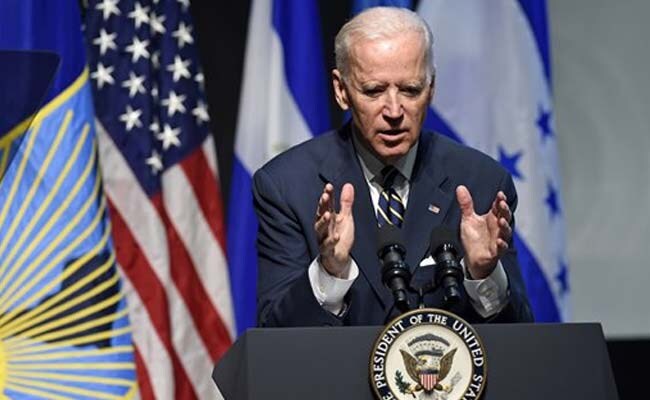
US Vice President Joe Biden said Thursday that Iraqi leaders have asserted the country's sovereignty in their war against jihadists and do not want to be "puppets" of Iran or other outside powers.
In last month's battle over the town of Tikrit, Iraqi Prime Minister Haider al-Abadi had insisted that forces fighting the Islamic State group must be under Baghdad's authority and not answer to neighboring Iran, Biden said.
Media coverage had initially portrayed Shiite militias backed by Iran as "running the show" in the Tikrit offensive.
But after the operation stalled in Tikrit, Abadi "courageously stepped in, making it absolutely clear the Iraqi government, him, as commander in chief, was in charge of this operation," Biden said in a speech at National Defense University in Washington.
At Abadi's request, the United States carried out air strikes against the IS in Tikrit, paving the way for Iraqi security forces to seize control of the town days later, according to Biden.
The events in Tikrit proved to be a crucial test of the government's army and political leaders, showing that Baghdad could uphold its own interests, he said.
Iraq for years has faced sectarian pressures at home and abroad but "Iraqis don't want to be drawn into regional conflicts," he said. "They don't want to be owned by anybody."
He added: "They don't want to be puppets dangling on a string of anyone's puppeteering in the region."
The vice president insisted that criticism of the US-led war effort overstated Iran's role and the IS group's performance on the battlefield.
"The claims do not reflect the circumstances on the ground," he said.
Iraq's new government under Abadi had taken "promising" steps to reach out to Sunnis while Iraqi and Kurdish forces had rolled back the IS group across the country, backed up by US-led air power, he said.
"The jury is still out, that's true. But the momentum is in the right direction," he said.
He said Iraq's leaders had to continue to pursue reconciliation among the country's Sunni, Kurdish and Shiite communities.
"The entire region is watching this closely. And Iraqi leaders can't afford to lose that sense of political urgency that brought them to this point," he said.
Much would depend on the prime minister, he said.
"They must continue to compromise. And it is hard."
Track Latest News Live on NDTV.com and get news updates from India and around the world

